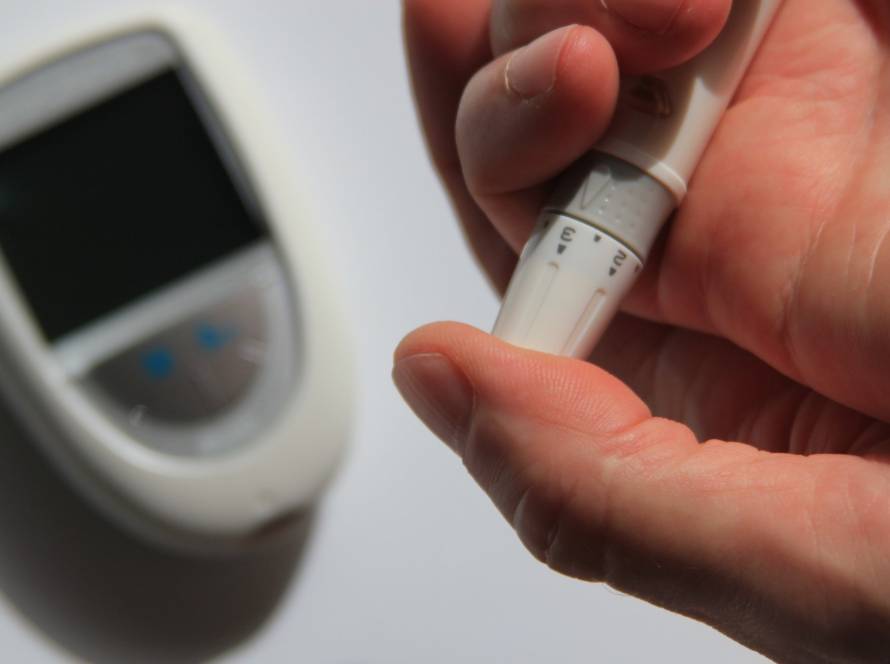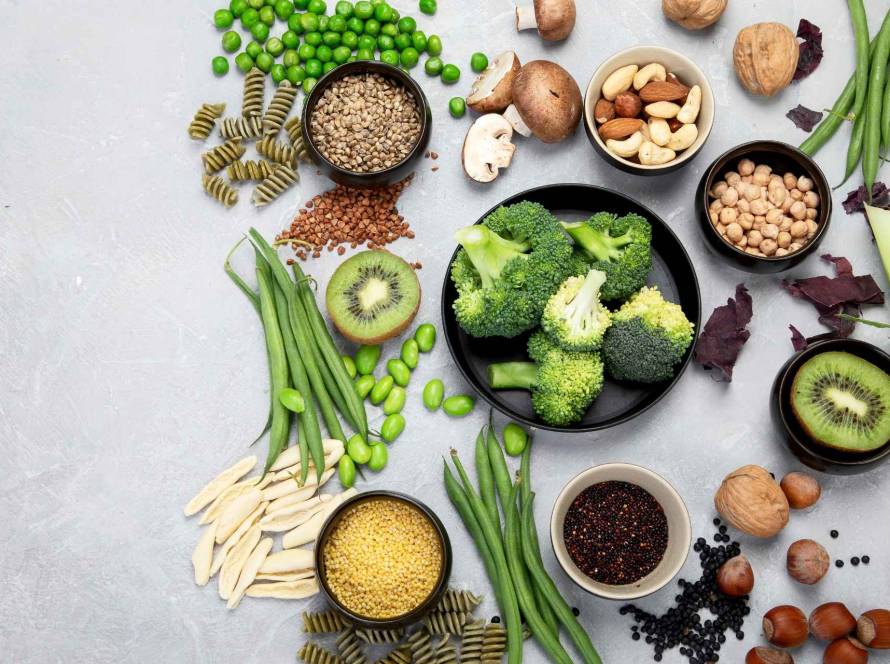Antioxidants shield our bodies from harmful free radicals and help us stay healthier and live longer. Research shows people who eat lots of fruits and vegetables (packed with antioxidants) face lower risks of heart disease and cancer.
This piece will help us discover where to get antioxidants, from antioxidant-rich fruits to top supplements. We’ll learn simple food swaps that can boost our antioxidant intake by a lot. We’ll also get into how eating foods high in antioxidants can improve our health without the side effects that come with regular medications.
Understanding antioxidants and their role in health
The battle between oxidants and antioxidants at molecular level shapes our health and longevity. Learning about this delicate balance helps us understand how our body fights cellular damage.
What are antioxidants and how they work
Antioxidants are molecules that can neutralize harmful free radicals by giving away electrons without becoming unstable. These protective compounds exist in two forms: our body makes some (endogenous), while we get others from food (exogenous). Our body produces antioxidant enzymes like superoxide dismutase (SOD), catalase and glutathione peroxidase. We get most external antioxidants from fruits, vegetables and other plant-based foods.
Our body’s antioxidant defense system stops free radical chain reactions or prevents them from forming. This protection works in several ways, it catches reactive species, stops them from forming and fixes oxidation damage.
Free radicals and oxidative stress explained
Free radicals are unstable molecules that lack paired electrons, which makes them react strongly with other cell parts. These molecules naturally form during normal body processes like cell breathing and immune responses. External factors like radiation, pollution and smoking also create them.
Our body experiences oxidative stress when it can’t balance free radical production with its antioxidant defenses. This damages important biomolecules including fats, proteins and DNA. Cell membranes break down, proteins stop working properly and DNA damage can lead to mutations.
Small amounts of free radicals actually help build cell structures and fight off germs. The problems start only when there are too many of them.
Why antioxidant balance matters
Our health depends on the right balance between oxidants and antioxidants. An imbalance that favors oxidative stress can lead to heart disease, brain disorders, diabetes, cancer and inflammation.
Our lifestyle choices affect this balance. Pollution, smoking, alcohol, high blood sugar, intense workouts and radiation create more free radicals. We can maintain this vital balance by eating different colored fruits and vegetables rich in natural antioxidants.
Our body needs both free radicals and antioxidants, that’s what makes this relationship complex. Too few antioxidants cause oxidative damage, but too many supplements can disrupt normal cell signaling and make oxidative stress worse. That’s why getting antioxidants from whole foods works better than taking supplements.
Best food sources of natural antioxidants
Nature gives us plenty of antioxidant-rich foods that help curb oxidative stress in our bodies. Research shows us exactly which foods pack the most of these protective compounds.
Fruits high in antioxidants: berries, grapes, citrus
Berries are the champions of antioxidants. Black chokeberries top the list. Elderberries come next, followed by blackcurrants and blueberries. Wild blueberries pack the biggest antioxidant punch overall. Red grapes contain resveratrol, which helps lower blood pressure and protects against blood clots. Citrus fruits, especially oranges, are packed with vitamin C, flavonoids and carotenoids that boost immune function.
Vegetables rich in antioxidants: leafy greens, carrots, beets
Spinach’s vitamin K and antioxidants help maintain healthy blood. Kale packs nutrients and glucosinolates that help reduce inflammation. Beets have betalains that work as antioxidants and lower cardiovascular disease risk. Carrots give us beta-carotene that’s good for our eyes and helps fight cancer. The interesting part is that tomato’s peels have more lycopene than their pulp or seeds.
Nuts, seeds and legumes: vitamin E and polyphenols
Walnuts are the antioxidant kings among nuts, mostly in their pellicles. Next come flaxseed meal, chestnuts, hazelnuts and pecans in polyphenol content. These foods give us vitamin E, a fat-soluble antioxidant that travels through the liver to our blood. Beans are great too, black beans and white beans provide good antioxidant content.
Herbs and spices: turmeric, ginger, oregano
Spices pack antioxidants in high concentrations. Clove leads the pack. Then we have peppermint, allspice and cinnamon. Turmeric has curcumin that fights inflammation and cancer. Ginger contains 6-gingerol and other compounds that actively fight free radicals. Oregano beats out thyme, sage, rosemary and basil in antioxidant power.
Teas and beverages: green tea, coffee, red wine
Green tea stands out among teas because its catechins stay intact through minimal processing. Coffee helps us get our daily antioxidants through ferulic and caffeic acids that reduce inflammation. Red wine also contains polyphenols. When we drink these beverages, our blood’s antioxidant levels go up measurably.
Simple food swaps to increase antioxidant intake
Simple dietary substitutions are an easy way to boost our antioxidant intake without changing our entire diet. These smart swaps help us eat more nutritious foods while cutting down on harmful ingredients.
Swap sugary snacks for berries or dark chocolate
Dark chocolate packs more antioxidants than many “super fruits” including acai berry, blueberry and cranberry. We can also top whipped cottage cheese with berries to create a protein-rich snack that combats inflammation and free radical damage.
Replace soda with green tea or pomegranate juice
Green tea leads the pack of antioxidant beverages. Its catechins help lower blood sugar and shield our nervous system. Pomegranate juice shows stronger antioxidant power than red wine, Concord grape juice or green tea.
Use herbs and spices instead of salt
Herbs and spices deliver potent antioxidants that fight inflammation. Turmeric, fresh ginger and garlic are especially effective at reducing inflammation. Black pepper, garlic powder, cumin, mint, dill and crushed red pepper make excellent alternatives if we miss salt’s flavor. Heat spices in a small amount of oil before cooking to maximize their flavor.
Add leafy greens to smoothies and meals
Leafy greens are among the most nutrient-dense foods accessible to more people. Our health benefits steadily improve when we add spinach to breakfast or choose salads with dark leaves. Soups taste better with kale, collard and spinach among other nutritious ingredients like carrots and parsley. We can also add extra broccoli and peppers on pizza or layer tomato slices on sandwiches.
Choose whole grains over refined carbs
Whole grain’s bran, germ and endosperm are the foundations of their health-promoting nutrients, including antioxidants. Whole grains, unlike refined ones, help maintain steady blood sugar levels by slowing glucose breakdown. Research shows that women who ate 2-3 servings of whole grain products daily had a 30% lower risk of heart attacks or death from heart disease over 10 years. Our risk of type 2 diabetes drops by 21% when we switch from refined to whole grains.
Supplements vs. whole foods: what the research says
Research shows a complex relationship between antioxidant supplements and whole foods. The evidence points to key differences in how they affect our health.
Top 10 best antioxidant supplements: benefits and limitations
Antioxidant supplements haven’t lived up to the benefits we see from whole foods, despite their popularity. People commonly use supplements with vitamins C, E, beta-carotene, zinc, selenium and coenzyme Q10, but research results remain largely inconclusive. A varied diet rich in colorful fruits and vegetables delivers better health benefits than any supplement. Supplements lack the complete package found in foods. To name just one example, vitamin E supplements contain just one form while foods give us eight different forms.
Bioavailability and absorption issues
The success of antioxidant supplements depends on bioavailability, how much of the substance reaches our plasma and body tissues unchanged. Several factors affect how well our bodies absorb these supplements. Many polyphenols don’t absorb well because they’re unstable, break down too quickly or change when they meet intestinal bacteria. Carotenoids work better with oil but lose effectiveness when heated during cooking. Some polyphenols stay active even at low concentrations in our blood, which is interesting given their poor absorption.
Risks of high-dose supplements
High-dose antioxidant supplements can harm us in several ways:
- Beta-carotene supplements raise lung cancer risk in smokers and people exposed to asbestos;
- Vitamin E supplements might increase prostate cancer and stroke risks;
- Large vitamin C doses can lead to diarrhea, nausea and stomach cramps.
Antioxidants often behave unpredictably and sometimes become prooxidants. Large supplement doses can cause reductive stress, opposite to oxidative stress, which creates more oxidative stress through positive feedback.
When supplements may be helpful
People with age-related macular degeneration (AMD) might benefit from specific antioxidant combinations. The AREDS formula, which contains vitamins C, E, zinc, copper and later lutein/zeaxanthin instead of beta-carotene, reduced advanced AMD progression by about 25%, according to studies. AREDS2 later showed that switching beta-carotene with lutein/zeaxanthin worked just as well without raising cancer risk in former smokers.
Interactions with medications and cancer treatments
Antioxidant supplements often clash with medications. Vitamin E makes bleeding more likely when taken with anticoagulants. Calcium reduces antibiotic effectiveness by 40%. Taking antioxidant supplements during cancer treatment might protect cancer cells and reduce treatment effectiveness. A study of 1,134 breast cancer patients showed that women who took antioxidant supplements during chemotherapy faced 41% higher recurrence risk and 40% higher death rates.
Our body gets steady protection against free radical damage when antioxidant-rich foods become part of our daily diet. These foods also provide many other essential nutrients. Nature has refined these beneficial compounds through development, packaging them exactly as our body needs them, in whole, natural foods.


